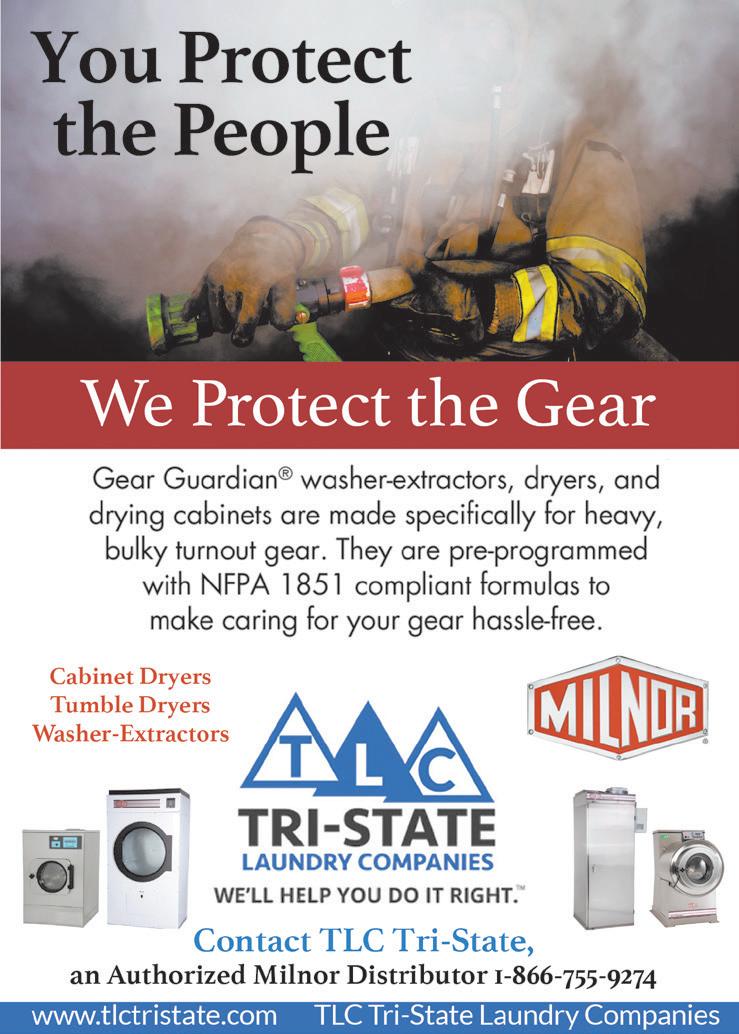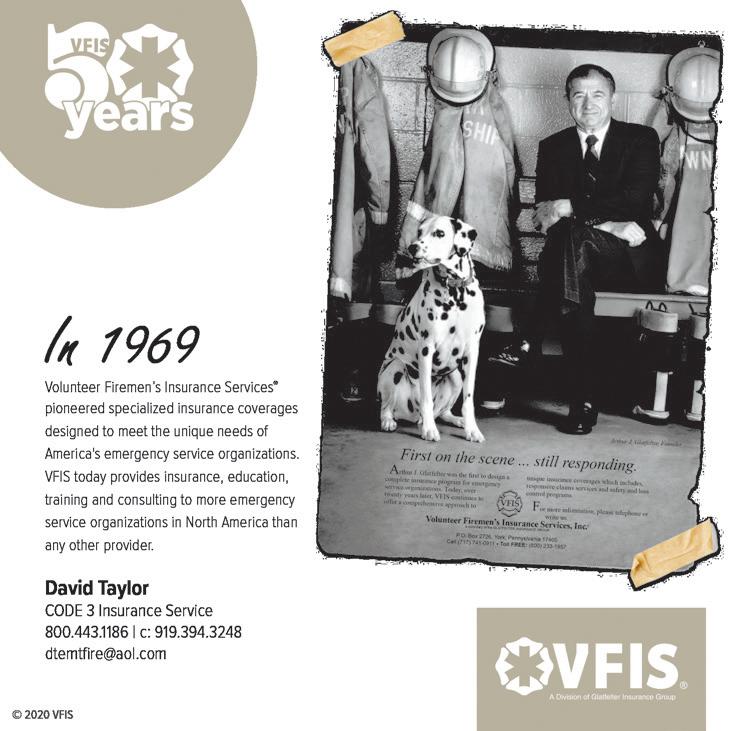
3 minute read
Challenging Times
News from North Carolina EMS Challenging Times
As EMS providers we live in interesting times. I wanted to take a moment to review some of the most recent James Winslow changes to the EMS landscape in North Carolina. There are three significant events taking place as I write this column. There is the ongoing COVID-19 pandemic. There has also been increased scrutiny of how law enforcement interacts with members of the community. EMS needs to recognize that it has the skill set to assist law enforcement with the de-escalation of potentially violent interactions. Lastly, the North Carolina Medical Board has approved the use of ketamine in North Carolina by paramedics.
Advertisement
The COVID-19 pandemic is still an active and ongoing event. It’s hard to predict the future, but it’s likely the pandemic will be with us for a while. There is also a very good possibility that it will worsen during the fall and winter. It is important for all of us to pay close attention to infection control measures and the appropriate use of PPE. We need to wear masks at all times if you are near others. People infected with COVID-19 can be infectious for approximately two days before they have symptoms. For this reason it’s important to wear masks so that we do not inadvertently infect others.
We cannot run the risk of infecting a large number of our co-workers. Wearing a mask is not comfortable or fun, but it is a necessary sacrifice that we need to make in order to protect others. As the pandemic continues the coming months will be stressful and difficult. Please remember that what EMS providers are doing is very important and that EMS providers are making an extremely important difference.
In the coming year I believe that many communities will take a look at how their police departments interact with the community. There will likely be an emphasis on preventing confrontations from becoming violent. I believe that EMS should try and partner with law enforcement to help de-escalate potentially violent situations. EMS has a strong track record of defusing tense interactions with persons undergoing a behavioral crisis whether it’s from a decompensated psychiatric problem or drug abuse.
A few examples of how EMS is already using these skills include assessing psychiatric patients and transporting them to alternative destinations as well as using community paramedics to assess and treat patients with substance abuse problems. EMS agencies need to take advantage of these skills to help their communities.
After an approximately four-year process the North Carolina Medical Board recently approved the use ketamine by paramedics in North Carolina. It can now be used for pain and sedation in addition to other indications. In the past ketamine could only be used to sedate patients in preparation for intubation or for post intubation sedation. The North Carolina Medical Board approved the increased use of ketamine after reviewing data from a 19-county pilot project that lasted one year. The NCOEMS will be releasing guidance for counties which want to take advantage of this scope of practice expansion. The requirements for EMS to use ketamine will entail some data reporting requirements, training requirements, and letters from receiving hospitals stating that they are willing to receive these patients.
In summary, we are not near the end of the COVID-19 pandemic. It is very possible that we still have not seen the worst of the pandemic. EMS agencies should focus on appropriate use of PPE and infection control practices. The role of police in our communities may also be evolving. EMS needs to step up and work with police to help defuse potentially violent situations. Lastly, after an approximately four year process the North Carolina Medical Board has approved increased use of ketamine by paramedics in North Carolina.
Dr. Winslow has worked at Baptist Hospital in Winston-Salem for the past 11 years. He was appointed as the Medical Director of the NC Office of EMS in 2011. This document contains all protocol, procedures, and policies for all EMS agencies in North Carolina.












